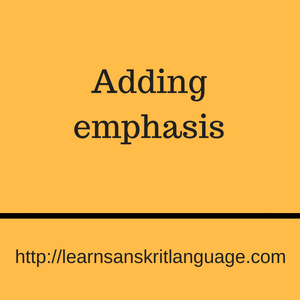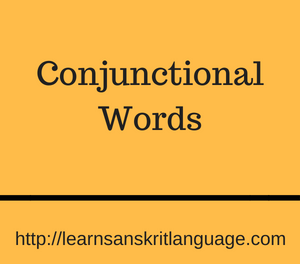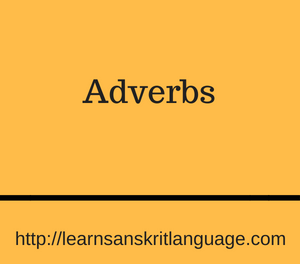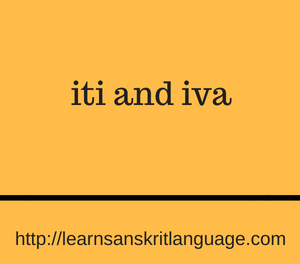Each language has its own way of communication and emphasizing becomes an important part of the smooth flow of communication. In English, we use stressed vowel to emphasize. Sanskrit also has its own way of emphasizing words; it uses a special set of uninflected words to do the work. That is done by Eva. Adding eva in front of words is a usual way of emphasizing I in Sanskrit. English translation of eva means “indeed” or “truly”.
Let us see an example in English;
That is my horse.
(That horse over there is my horse, not the other one.)
That is my horse.
(That is my horse, not yours or anybody else’s.)
Such words are present in Sanskrit too, they are called stress accent in English. In Sanskrit, this job is done by Eva. So let us understand about Eva
– Eva
नरो वीर एव
naro vīra eva
The man is a hero. (The man is a hero, not anything else.)
नर एव वीरः
nara eva vīraḥ
The man is a hero. (The man, indeed, is a hero.)
As said earlier, the English translation of eva means “indeed” or “truly”, which here makes sense with the sentence.
It can also mean “alone” or “only”
नर एव वीरः
nara eva vīraḥ
The man alone is a hero (and nobody else).
त्वम् एव वनम् आगच्छति
tvam eva vanam āgacchati
Only you (and nobody else) come to the forest
– Tu and hi
Apart from eva, tu and hi is also used for emphasizing words. In English, tu can mean denote contradiction like the word “but” whereas hi can mean conclusion like the word “for” or “after all”
अहं तु नरः
ahaṃ tu naraḥ
But I (too) am a man.
स हि सुन्दरो ऽश्वः
sa hi sundaro ‘śvaḥ
He, after all, is a beautiful horse.
– Api
Another word used for emphasizing purpose is the word api. It is used like all three words but has a weaker intonation. It means “also”, “additionally”
नरो ऽपि वीरः
naro ‘pi vīraḥ
The man is also a hero
अपि च, त्वम् अपि वीरः
api ca, tvam api vīraḥ
Furthermore (literally “and also“), you are also a hero.
Apart from using them ins sentences and phrases, these words are sued a lot in Sanskrit poetries too. one of the reasons of that is Sanskrit poetry uses a combination of a heavy and light syllable. These words are used to fill the gap between those syllables. Verb prefixes are also used for the same purpose.




